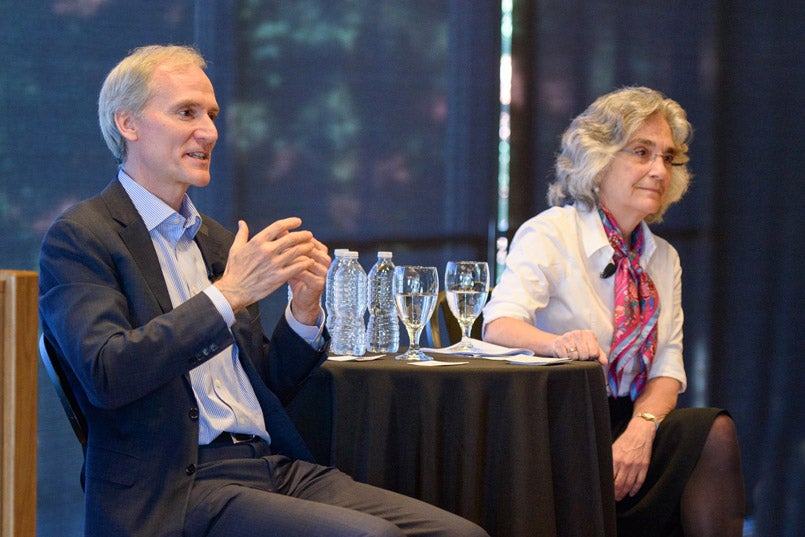November 6, 2018
Civic engagement on Election Day and beyond
I want to take this moment, on Election Day, to encourage each and every eligible member of the Stanford community to cast your vote, if you haven’t already. Voting is the bedrock of our democratic system, and it is an essential way to support the issues you care about and the representatives you think can carry forth those promises.
I also want to thank the faculty, students, and staff from across the university who participated in the StanfordVotes campaign. The campaign was launched last spring in the face of data showing poor turnout of student voters on our campus in past elections, both in absolute terms and compared to our peer universities.
Since the campaign’s launch, dozens of faculty, staff, and student volunteers have put in hundreds of hours to register members of the Stanford community. The campus-wide effort, which was led by the student-run Stanford in Government program and the Haas Center for Public Service, signed up more than 2,500 Stanford students for voter registration, absentee ballot requests, and election reminder sign-ups.
I am proud of this remarkable effort to turn out the vote, and of the participation of so many members of our Stanford community.
But voting is only the first step—civic participation involves ongoing engagement. As we move beyond today’s election, there will be many opportunities to strengthen our Stanford community and make positive contributions to our national discourse. These opportunities include:
- Participating in Cardinal Service by making a Cardinal Commitment, pursuing a Cardinal Quarter, engaging in Cardinal Courses, or considering a future in public service or social impact through Cardinal Careers.
- Getting involved in Stanford in Government or another student-led organization promoting dialogue and civic action.
While elections may highlight divisions in our nation and in our own community, civic engagement and public service can help us find common ground with those whose beliefs and perspectives differ from our own.
Stanford is a place of welcome for people from all ideological perspectives and from every background and identity. The diversity of individual perspectives and experiences on campus provides each of us the opportunity to broaden our horizons and deepen our insights by learning from one another and the community around us. All of us share a responsibility for fostering an inclusive community of care and respect, establishing a culture of reasoned discussion of ideas, seeking understanding across difference, and serving one another and the broader world.
Thank you, again, for making your voices heard this year. I am deeply grateful for our engaged Stanford community.
